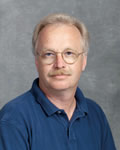| |
|
Today
8
a.m.
New Employees Orientation
50 Auditorium
9:10
a.m.
EHS 10: Introduction to EH&S
50 Auditorium
9:30
a.m.
EHS 604: Hazardous Waste Generator
51-201
11
a.m.
EHS 622: Radioactive and Mixed Waste Generator
51-201
1:30
p.m.
EHS 735/738/739: Biosafety/Bloodborne Pathogen
51-201
3
p.m.
EHS 730: Medical/Biohazard Waste
51-201
Tomorrow
10 a.m. – noon
ES&H for Supervisors
Building 51-201
Noon – 1 p.m.
Summer Lecture Series
Christian Kisielowski, "If We Could Only Account
for Every Single Atom,"
50 Auditorium.
Noon – 1 p.m.
Computing Sciences Summer Student Seminars: Forget Theory
for a Minute. Build it...Break it...Fix it," a practical
talk about robotics and electronics; Zach Radding
Bldg. 50A, room 5132.
1 – 4:30 p.m.
Radiation Protection Safety
Building 51-201
|
|
| |
| |
Market Carvery: Salisbury Steak with
Mashed Potatoes
Fresh Grille: Smoked Cajun Sausage
Sandwich
Menutainment:
Fiesta Taco Salad
|
| B'fast: |
6:30 a.m. - 9:30 a.m. |
| Lunch: |
11 a.m. - 1:30 p.m. |
| Full
Menu |
|
|
|
 |
|
|
 |
 |
|
|
| Kisielowski |
|
|
|
Final
Summer Lecture:
Accounting for Atoms
Christian
Kisielowski, an expert in electron microscopy, will give
the final summer lecture, "If We Could Only Account for
Every Single Atom," tomorrow at noon in the Building
50 auditorium. Kisielowski has employed hardware like NCEM’s
record-breaking One Angstrom Microscope; imaginative techniques
like electron holography; and sophisticated software like
the image-analysis programs he and his colleagues developed
to enable scientists to extract information about the composition
and structure of materials from lattice images. Currently
Kisielowski is investigating ways to allow studies of single
atoms – a goal of the international Transmission Electron
Aberration-free Microscope (TEAM) project. |
|
|
|
 |
| |
House
Adds Funds
For Office of Science
The
House of Representatives on Friday approved its
version of the FY04 Energy and Water Appropriations
bill, which provides funding for Department of
Energy programs. In the bill, the Office of Science
would receive $3.2 billion, a boost of 4.3 percent.
The House would add funds for high performance
computing research, domestic fusion, and increased
extramural user time at DOE's large-scale scientific
facilities. The Senate is currently considering
a similar bill, which they may vote on this week.
For an analysis of the House action by the American
Association for the Advancement of Science, go
here. |
| . |
|
|
 |
|
| DOE’s
Orbach Cites
Excellence of NERSC
Last
Thursday’s edition of Today at Berkeley Lab
reported on the House Science Committee’s
hearing last week on the nation’s future
computing capabilities. Ray Orbach, the director
of DOE's Office of Science, testified that day
about "our need for advanced supercomputing
capability." Orbach specifically referred
to scientific achievements by users of the National
Energy Research Scientific Computing Center (NERSC)
at Berkeley Lab. He also described a new program,
called INCITE, for Innovative and Novel Computational
Impact on Theory and Experiment, which will allocate
4.5 million processor hours at NERSC to advance
research on "four or five scientific problems
of major importance." Read his full testimony
here. |
| |
|
| |
 |
 |
 |
| |
| Sun's
Microflares
Heating Corona?
The
sun's big, bright, explosive flares are the attention
grabbers, but tiny, more numerous microflares
may have nearly as much influence on the solar
atmosphere, according to new data from UC Berkeley's
RHESSI satellite. Since solar flares play a major
role in space weather, RHESSI's discoveries about
flares and microflares could eventually help predict
the big storms that interfere with radio communications
on Earth. The RHESSI scientific payload is a collaborative
effort among UC Berkeley, NASA Goddard Spaceflight
Center, the Paul Scherrer Institut in Switzerland
and Berkeley Lab. Full
story. |
| |
|
|
 |
|
|
| |
|
| DVD’s
For Buying
Not Keeping
By
Eric A. Taub
When
tapes and DVD's are returned after the due date,
late fees often double the cost of a rental. Walt
Disney Company plans to test market a new type
of DVD that will be priced about the same as a
rental but never needs to be returned — because
it stops working after a fixed period of time.
Even if the discs are not recycled, single-use
disposable DVD's will result in net energy savings,
according to a study conducted by Jonathan
Koomey, staff scientist at Berkeley Lab. "The
solid waste impacts may be more than completely
offset by the gasoline saved from avoided trips
to the video store. Gasoline savings could be
7.5 to 20 times larger than the increase in solid
waste," Mr. Koomey said. Full
story. |
| |
|
|
|
|
 |
|
 |
| |
|

